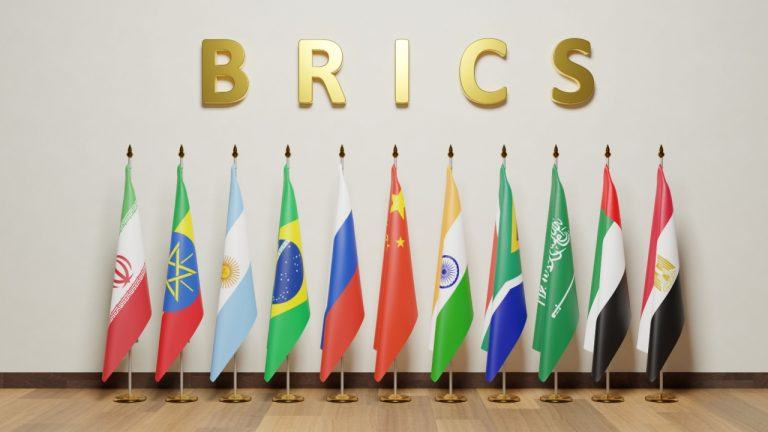
The losses suffered by Americans as a result of fraudulent bank transfers and payments have significantly increased over the past five years, according to government numbers. Data from the Federal Trade Commission (FTC) shows that US consumers lost $2.088 billion to fraudulent bank transfers and payments in 2024. The amount is significantly higher than the […]
The post US Consumers Lose $2,088,000,000 to Fraudulent Bank Transfers and Payments, According to FTC appeared first on The Daily Hodl.
 With the participation of Ribbit Capital, Franklin Templeton, NYCA, First Round, Lightspeed Faction, and HF0, Crossmint will accelerate its mission to bring every business and AI agent onchain. Crossmint Raises $23.6 Million to Move Businesses to Blockchain The world is increasingly moving to include blockchain technology, and companies like Crossmint have risen to address this […]
With the participation of Ribbit Capital, Franklin Templeton, NYCA, First Round, Lightspeed Faction, and HF0, Crossmint will accelerate its mission to bring every business and AI agent onchain. Crossmint Raises $23.6 Million to Move Businesses to Blockchain The world is increasingly moving to include blockchain technology, and companies like Crossmint have risen to address this […] The bill seeks to allow wages and other labor-linked payments to be partially settled using virtual assets in Brazil and also calls for educating workers about volatility and transaction security issues. Lawmakers to Review Bitcoin Wages Bill in Brazil A new bill has been introduced in Congress to regulate the payment of wages and other […]
The bill seeks to allow wages and other labor-linked payments to be partially settled using virtual assets in Brazil and also calls for educating workers about volatility and transaction security issues. Lawmakers to Review Bitcoin Wages Bill in Brazil A new bill has been introduced in Congress to regulate the payment of wages and other […] On March 7, fast food chain Steak ‘n Shake posted a question on X asking, “Should Steak ‘n Shake accept bitcoin?” The post received a slew of responses from many well-known Bitcoin personalities including former Twitter CEO Jack Dorsey and Bitcoin Core contributor Luke Dashjr. Steak ‘n Shake recently aligned itself with the pro-crypto Trump […]
On March 7, fast food chain Steak ‘n Shake posted a question on X asking, “Should Steak ‘n Shake accept bitcoin?” The post received a slew of responses from many well-known Bitcoin personalities including former Twitter CEO Jack Dorsey and Bitcoin Core contributor Luke Dashjr. Steak ‘n Shake recently aligned itself with the pro-crypto Trump […] In a strategic move to enhance its enterprise payment solutions, crypto payments company Moonpay has acquired Iron, a startup specializing in stablecoin infrastructure, for at least $100 million. This acquisition, announced on March 13, 2025, marks Moonpay’s second significant purchase this year, following its acquisition of Helio in January. With Iron’s API-driven technology, Moonpay aims […]
In a strategic move to enhance its enterprise payment solutions, crypto payments company Moonpay has acquired Iron, a startup specializing in stablecoin infrastructure, for at least $100 million. This acquisition, announced on March 13, 2025, marks Moonpay’s second significant purchase this year, following its acquisition of Helio in January. With Iron’s API-driven technology, Moonpay aims […] Brazil will push crypto initiatives, including a blockchain payment system, to expedite international trading as part of its presidency at BRICS this year. Local media stated this would be a priority for the South American giant’s plans for the organization. Brazil to Push Hard for Crypto Implementation in BRICS Trade The agenda of Brazil as […]
Brazil will push crypto initiatives, including a blockchain payment system, to expedite international trading as part of its presidency at BRICS this year. Local media stated this would be a priority for the South American giant’s plans for the organization. Brazil to Push Hard for Crypto Implementation in BRICS Trade The agenda of Brazil as […] Stark Bank, a startup backed by Amazon founder Jeff Bezos, has positioned itself as the go-to firm for serving cryptocurrency businesses in Brazil, filling the gap left by traditional institutions. The firm has built part of its business around this service offering, betting on the industry’s future as Brazilians become more comfortable with crypto. Bezos-Backed […]
Stark Bank, a startup backed by Amazon founder Jeff Bezos, has positioned itself as the go-to firm for serving cryptocurrency businesses in Brazil, filling the gap left by traditional institutions. The firm has built part of its business around this service offering, betting on the industry’s future as Brazilians become more comfortable with crypto. Bezos-Backed […] The program, currently in its pilot stages, is part of a test to examine the feasibility of using gold assets for finalizing international exchanges involving Russia. Capital Lab partner Evgeny Shatov stated that digital gold assets can help the nation bypass sanctions and reduce its dependence on the dollar. Russia Is Testing Digital Gold-Based International […]
The program, currently in its pilot stages, is part of a test to examine the feasibility of using gold assets for finalizing international exchanges involving Russia. Capital Lab partner Evgeny Shatov stated that digital gold assets can help the nation bypass sanctions and reduce its dependence on the dollar. Russia Is Testing Digital Gold-Based International […] The European Central Bank is advancing its digital asset settlement strategy, aiming to streamline transactions, enhance security, and strengthen financial stability across European markets. Digital Asset Settlement Transformed as ECB Embraces DLT Solutions The European Central Bank (ECB) announced on Feb. 20 an expansion of its initiative to facilitate the settlement of distributed ledger technology […]
The European Central Bank is advancing its digital asset settlement strategy, aiming to streamline transactions, enhance security, and strengthen financial stability across European markets. Digital Asset Settlement Transformed as ECB Embraces DLT Solutions The European Central Bank (ECB) announced on Feb. 20 an expansion of its initiative to facilitate the settlement of distributed ledger technology […] Ripple expands in Europe, bringing instant, low-cost blockchain payments to Portugal and revolutionizing transfers on the Portugal-Brazil corridor. Ripple’s European Footprint Grows—First Ever Launch of Its Payments Solution in Portugal Ripple announced a partnership with Unicâmbio, a Portuguese currency exchange provider, on Feb. 10 “to support instant cross-border payments between Portugal and Brazil using Ripple […]
Ripple expands in Europe, bringing instant, low-cost blockchain payments to Portugal and revolutionizing transfers on the Portugal-Brazil corridor. Ripple’s European Footprint Grows—First Ever Launch of Its Payments Solution in Portugal Ripple announced a partnership with Unicâmbio, a Portuguese currency exchange provider, on Feb. 10 “to support instant cross-border payments between Portugal and Brazil using Ripple […]